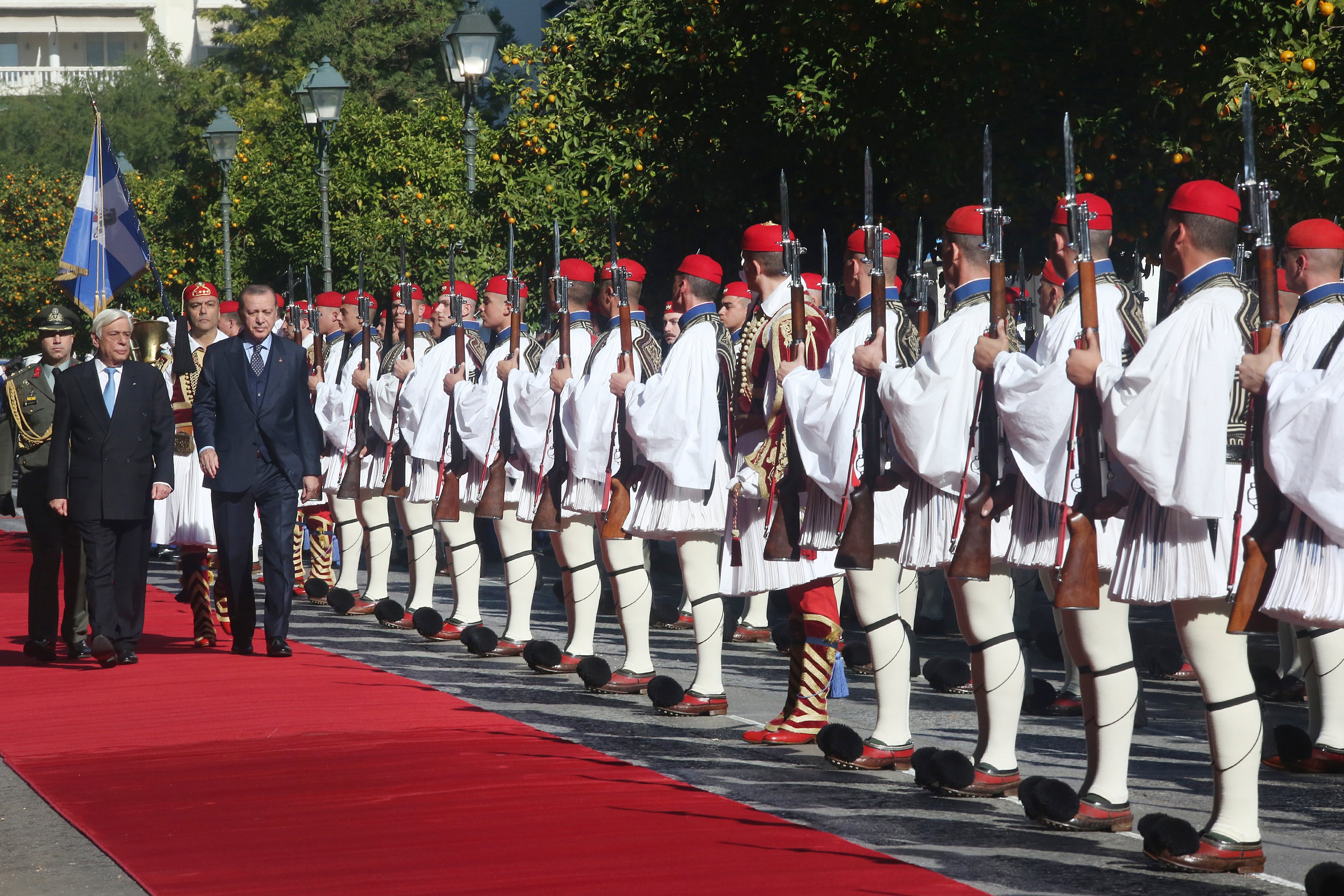The broad smiles and camaraderie of Foreign Minister Nikos Kotzias in welcoming Turkish President Recep Tayyip Erdogan at Athens’ Eleftherios Venizelos airport this morning was a far cry from the angry response of the government to Erdogan’s interview with Skai TV’s Alexis Papachelas that was broadcast last night.
On the eve of his arrival, Erdogan demanded changes to the Treaty of Lausanne, which sets the two countries’ common borders, questioned the competence of the Greek judiciary in handling his extradition request for eight Turkish military officers allegedly involved in the coup against him, and referred to the Muslim minority of Western Thrace as Turkish compatriots, triggering a stern response from the Greek government last night.
“Mr. Erdogan’s interview today raises intense concerns and questions,” Dimitris Tzanakopoulos said in a statement.
“Respect for the Treaty of Lauasanne constitutes the sole and non-negotiable foundation on which the honest cooperation of the two countries can be built. References to a revision [of the treaty] do not contribute to the climate we are trying to construct in our relations and the region,” the government spokesman said.
That was before Erdogan at the presidential mansion this morning publicly demanded an overhaul of the Lausanne Treaty, claimed that the Muslim minority in Western Thrace is Turkish, and raised sovereignty issues regarding the Aegean.
New Democracy lashes out
Dimitris Stamatis, a former state minister and top advisor to then prime minister Antonis Samaras lashed out at the government in a tweet.
“Erdogan directly provokes two days before he comes to Greece! He is formally and imperatively demanding a revision of the Lausanne Treaty. He arbitrarily names the Greek Muslims of Thrace as his compatriots. He unabashedly offends the Greek judiciary. Is this the agenda for talks Mr. Tsipras?”
Gennimata: government botched preparation for visit
The head of the new centre-left Movement for Change and Pasok President Fofi Gennimata said that, “The views expressed by the Turkish president on Greek-Turkish relations unfortunately bodes ill for the framework in which he intends to act in his talks here and for the outcome of those talks.
Gennimata said that Erdogan’s remarks “reveal the unswerving and steadfast fixation with the harshest positions of Turkish policy on the entire spectrum of Greek-Turkish relations and confirm his decision to formalize at the highest level Turkish demands regarding the revision of the Lausanne Treaty, the redrawing of borders, and the change in the status of the Aegean islands.”
“Moreover, the Turkish president unqualifiedly repeated his insistence on referring to the minority in Thrace as Turkish, assiduously avoiding references to the minority as Muslim [which is how it is characterised in the Lausanne Treaty,” she said.
The Pasok leader slammed the alleged lack of diplomatic preparation for the visit on the part of the government.
“The government invited the Turkish president without having sercured the minimum and self-evident terms – respect for the borders and territorial integrity of our country,” Gennimata said.
“It is obvious that Mr. Erdogan’s objective is to shift the foundation of bilateral relations from the level of international law to the level of bilateral understandings without commitments, where the principle of might makes right prevails. We call on the government and all players to refuse to enter into any such discussions.”



